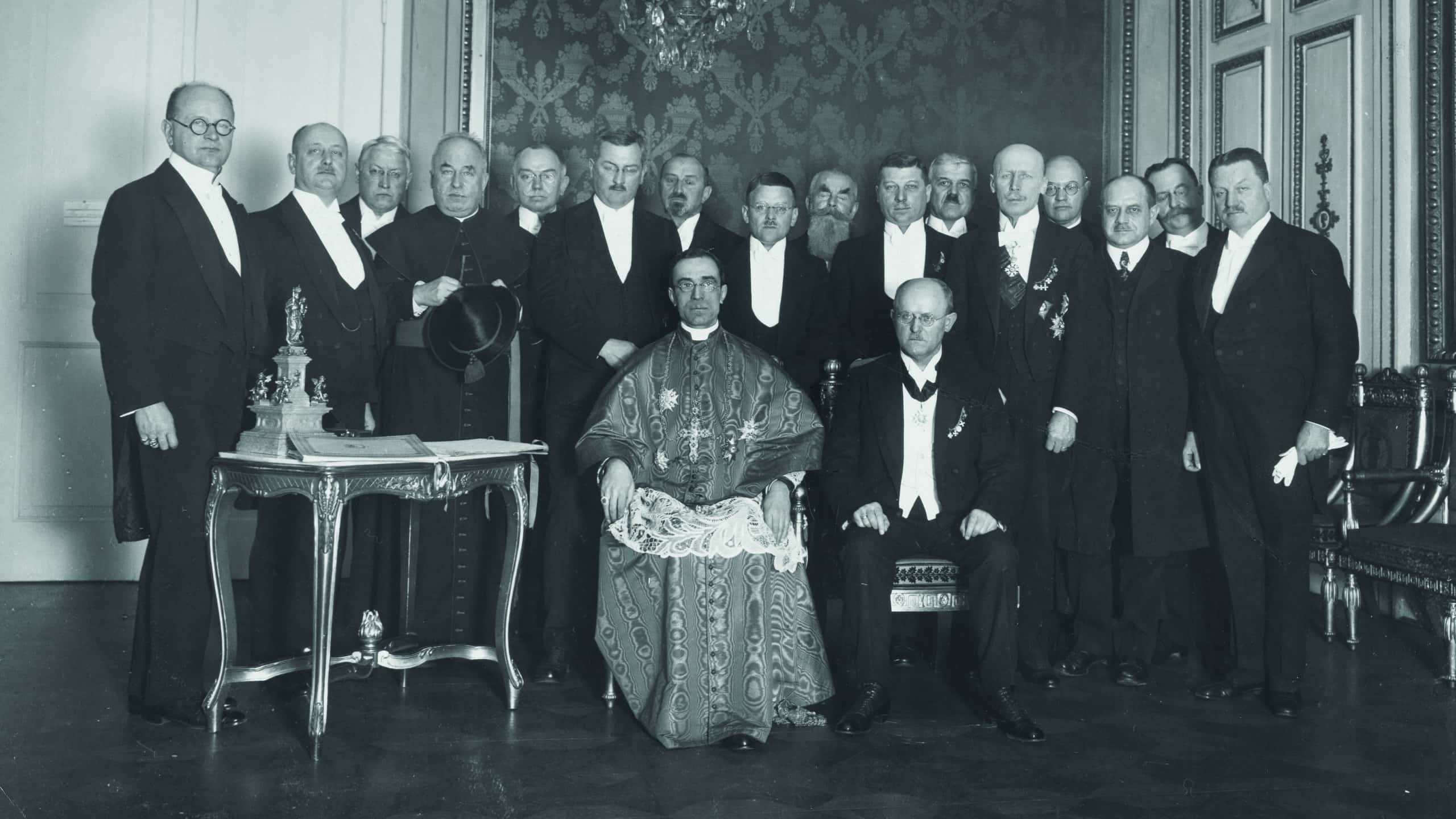On 29 March 1924 - 100 years ago - Bavaria and the Holy See concluded a new concordat after almost five years of negotiations. The one from 1817, which had regulated state-church relations until then - albeit not entirely without conflict - was considered invalid by all sides. For Bavaria, humiliated domestically in "Weimar" and powerless in foreign policy, the new agreement was a political success that they were prepared to buy with considerable concessions. Despite numerous changes, the Concordat is still largely valid today.
Programme of the event:
Bavaria can look back on one and a half thousand years of history - and there have been ecclesiastical structures in the territory of today's Free State for 1300 years. Over the centuries, there have always been treaties, sometimes already called concordats, between the Bavarian rulers and the ecclesiastical principalities surrounding the duchy, whereby these were treaties between equal powers. With the change from Old to New Bavaria at the beginning of the 19th century, after secularisation, mediatisation and further Napoleonic upheavals, the situation changed fundamentally. The bishops were no longer princes, they were restricted to their spiritual duties and were now subjects of the Bavarian king. In turn, the ecclesiastical structures became far more integrated into the state than before, which made agreements with the Curia necessary. After more than ten years of sometimes highly controversial negotiations, the Holy See and the kingdom concluded a concordat in 1817, which on the one hand accommodated the Bavarian monarch in some important points, but on the other contained clauses that were impossible for Bavaria to fulfil. 100 years later, it was considered invalid by some, as the revolution of 1918/19 had swept away the monarchy and created new structures. From 1919 to 1924 - accompanied by political and social upheavals and conflicts as well as disputes with the imperial government in Berlin - various Bavarian governments negotiated with the Munich nuncio Eugenio Pacelli (later Pope Pius XII) before the treaty was signed on 29 March 1924, 100 years ago. The main points of this concordat are still valid today.
